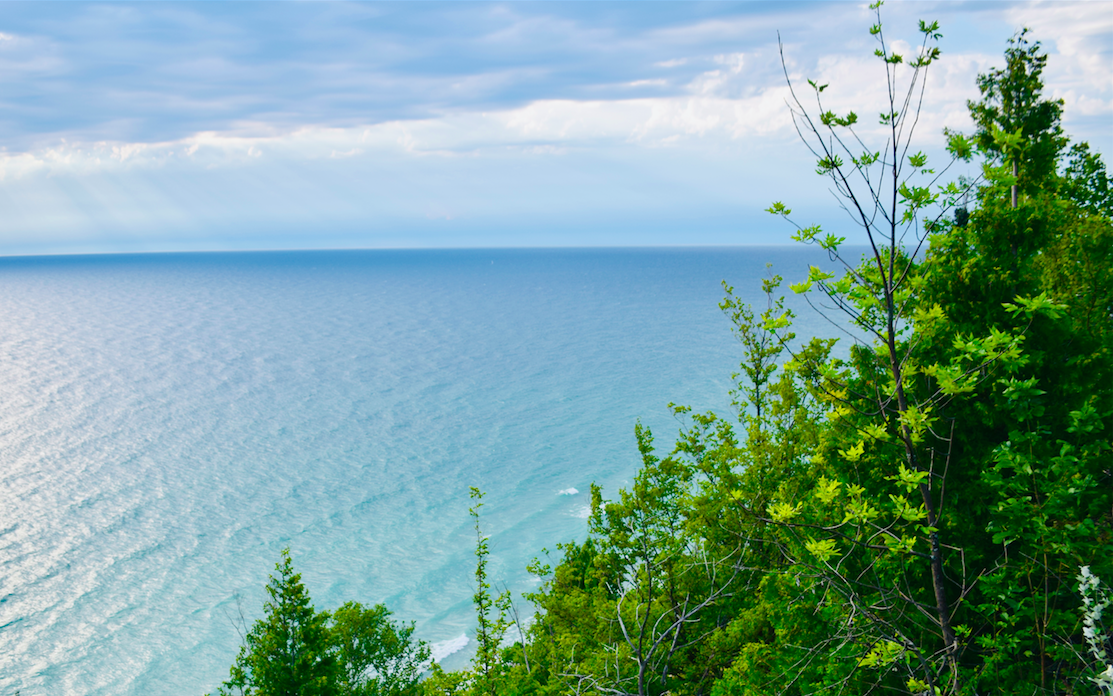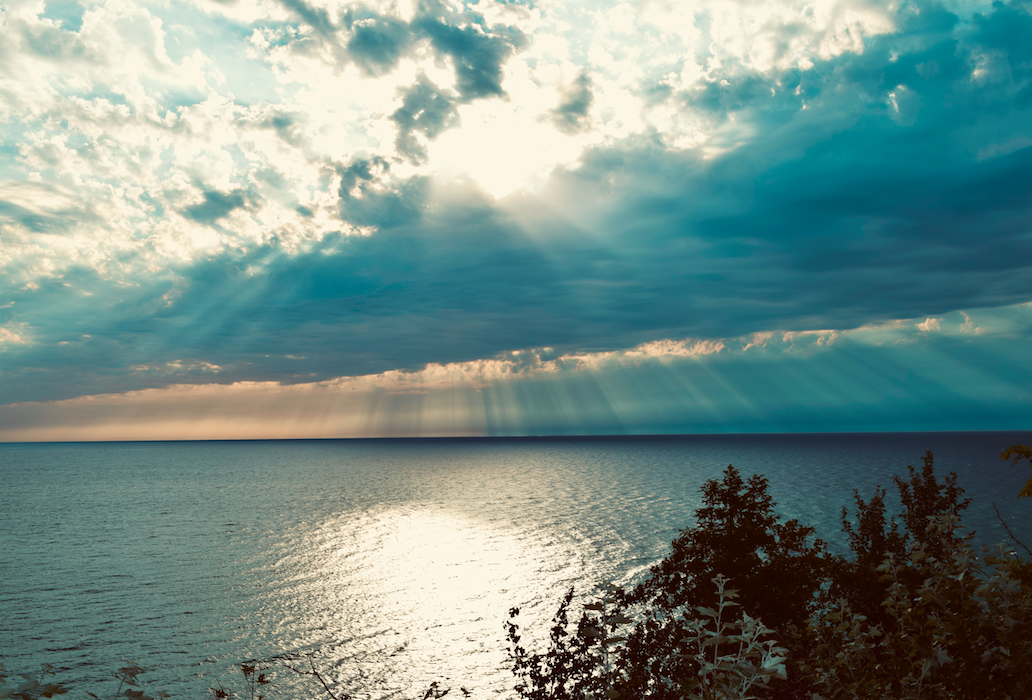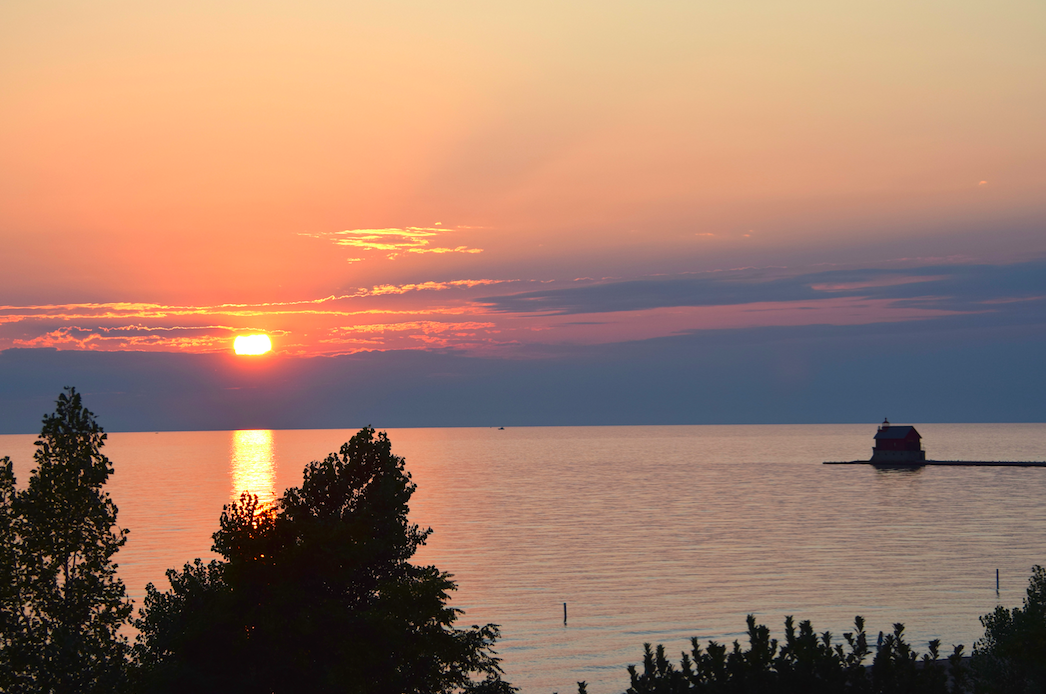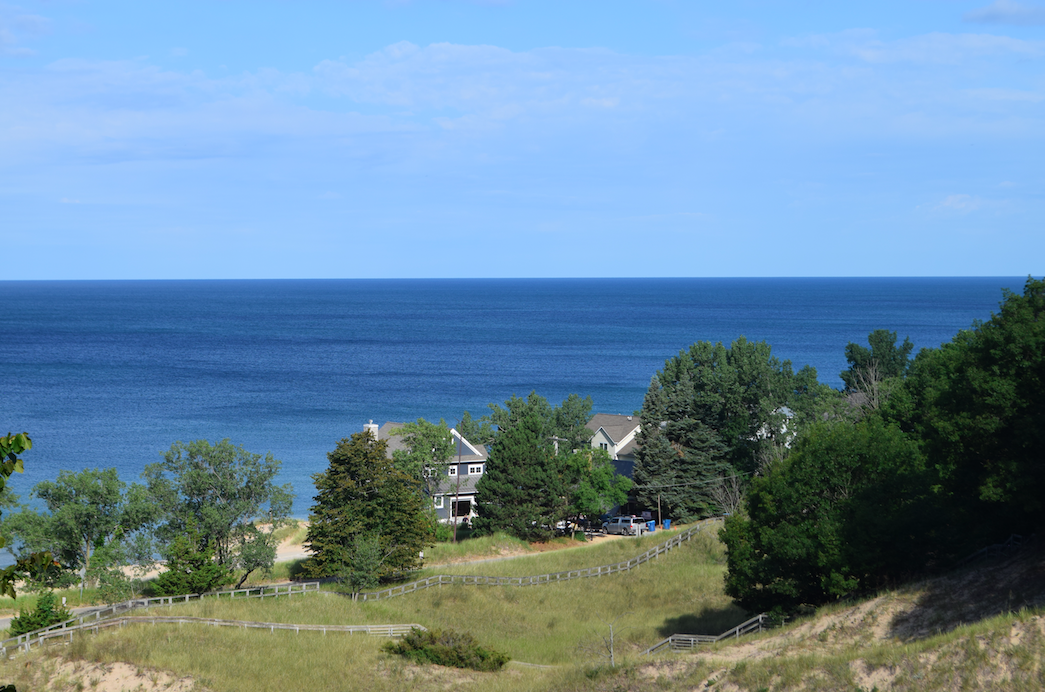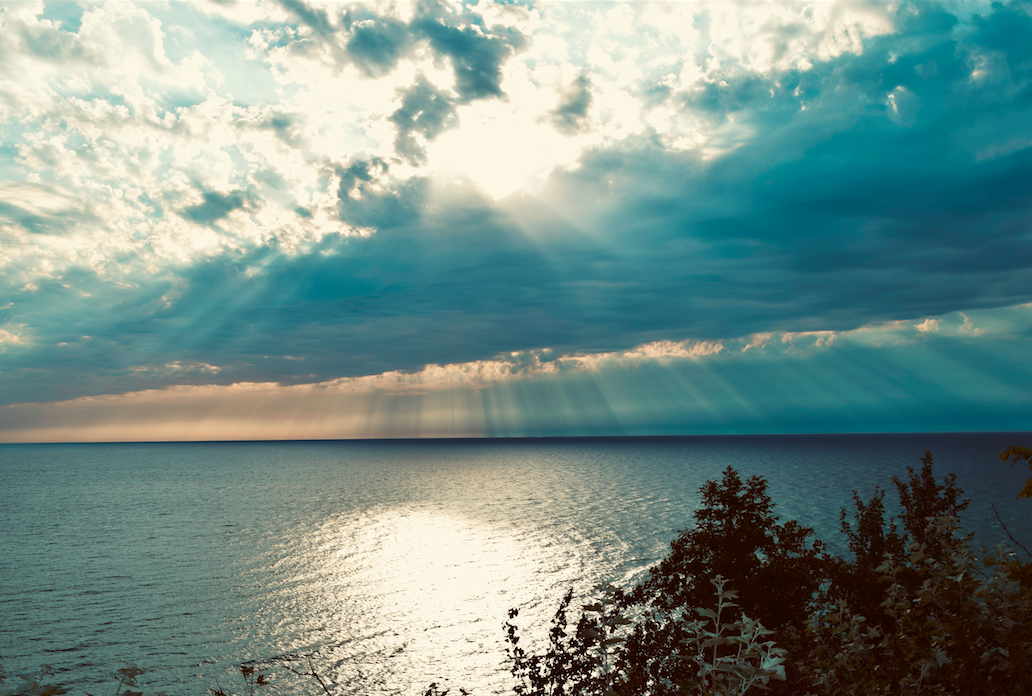The Lake Effect
“I stood ankle-deep in Lake Michigan for the first time when I was two years old,” Fred Carlisle writes. His fascination with the lake began then and has continued throughout his life.
The Lake Effect is grounded in the author’s personal experiences but moves to wider considerations that include the aesthetic, emotional, historic, economic, and social effects of Lake Michigan.
The book captures the lake’s mesmerizing beauty in summer and winter. It also examines the way Lake Michigan sustains the economies and societies of every place along its shores. It speaks of the ways human intervention and carelessness have polluted, damaged, and degraded the lake. The book also describes the lake’s power—in both water and ice forms—to drown swimmers, wreck ships, destroy beaches, and consume houses.
The Lake Effect explores as well the functions and power of water broadly. Water can be magical and make us healthier, happier, and more peaceful. It can also be an adversary that damages and destroys. Water is equally a comfort and a threat: a mosaic of multiplicity and contradiction.
Praise for The Lake Effect
“
A love letter to water…
In Lake Effect, Carlisle insightfully engages in the paradox of our long and complex relationship with the Great Lakes. Using memory, science, research, history, and culture to plumb the depths of his love for the lakes, he renders a stunning series of deep reflections of the “lake effect” on humanity. His interconnected chapters ask if water is the “divine gift” that is deeply compromised and now threatened, or the source of our “blue mind”—our obsession to be near water in its aesthetic richness. Or in its powerful storms and destructive forces, is it a darker magic? As he asks these questions, he places us in water-laced settings where we too can feel the nuances of our lake-longing and water use. This book reads like an exquisite essay but feels like a love letter to water.
-Anne-Marie Oomen, Author of three memoirs; a travel essay collection, An American Map; and As Long as I Know You, winner of the AWP Sue William Silverman Award for Creative Nonfiction.
The Lake Michigan Fred Carlisle brings achingly alive in these pages is both an inward lake, a wholeness and a splinter of glimpses, formed and deepened and understood over a lifetime; and an outward one, with its own complex and sometimes troubling history, its own power and force and constantly changing sublimity. The beauty of the writing rises out of its deep, wryly curious attention, alive to an ordinary world that is shot through with glimpses of the profound and the sacred. Carlisle is someone we can trust, who we would want to spend a day with, standing on a dune, pondering a ferry schedule, peering at a photo of a child and his father on the way to Wrigley Field. In reading him, we are each reminded of our own inner landscapes and their power to shape and shatter and make us new.
-Thomas Gardner, Author of Poverty Creek Journal and Sundays
Fred Carlisle evokes his lifelong fascination with Lake Michigan—“a magical, mystical lake” whose presence has had an indelible effect on his life from the earliest years of childhood. Carlisle is a gifted writer, and his prose captures the lake’s haunting beauty and mystery. What sets this memoir apart, however, and makes it so compelling is his insistence on painting the full picture of the lake’s effect—“the complex mosaic” that includes threats posed by the power and force of water and the environmental degradation of the lake caused by “the destructive effects of human intervention.” Chapter 7, “The Invasive Juggernaut: Beneath the Shimmering, Mesmerizing Surface” (on non-native and destructive species) is especially fascinating and powerful. Carlisle’s decision to write in full awareness of the ambiguities of water and of Lake Michigan makes this book particularly appealing to a wide range of readers, even those who have never had the pleasure of visiting Lake Michigan.
-Nancy Grayson, Executive editor, retired, The University of Georgia Press
Think of a place that is special to you: a place that grounds you, helps form who you are, and is part of your blood. For Fred Carlisle, that place is Lake Michigan. Carlisle has been around the world, but he keeps coming back to this one lake.
Carlisle’s relationship with Lake Michigan began in his youth and grew and evolved across decades. As his life changed, there was one constant. Carlisle loves Lake Michigan despite knowing it will never return his affection. The lake may not love him, but it does provide for him. It fills him with awe through its beauty and fear through its anger. It restores and rejuvenates him. More than anything else, it fills him with wonder.
Some twelve million people live along the Lake Michigan shoreline. These people use the lake for recreation and commerce, loving it and abusing it in almost equal parts. Carlisle explores this complex relationship, and realizes that, like him, they keep coming back to this lake because they need it.
Words and images cannot properly describe everything that Lake Michigan is. But through his prose, Carlisle captures the big lake’s spirit. And like Lake Michigan itself, The Lake Effect casts a spell.
-William Rapai, author of Lake Invaders: Invasive Species and the Battle for the Future of the Great Lakes
”
